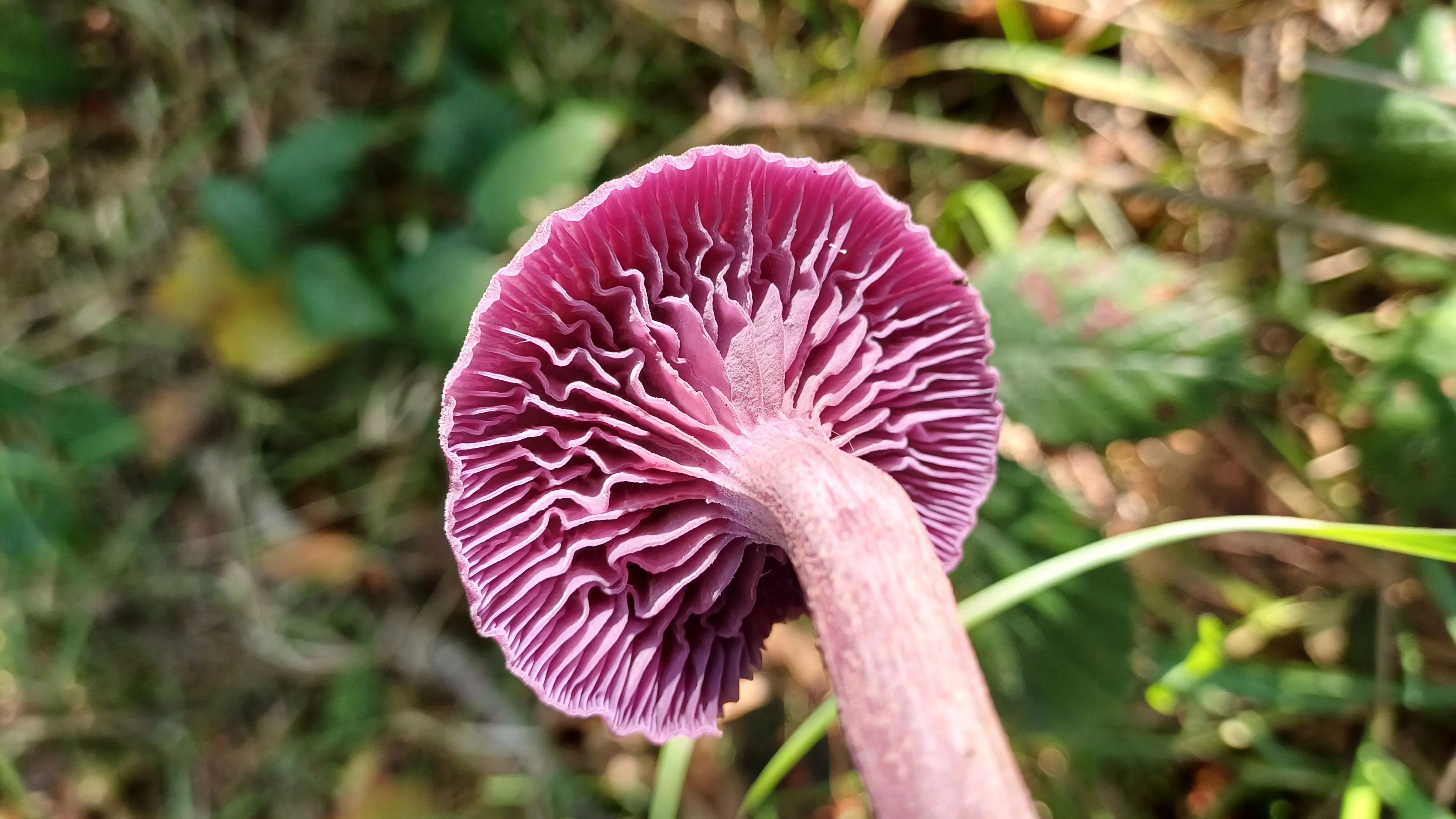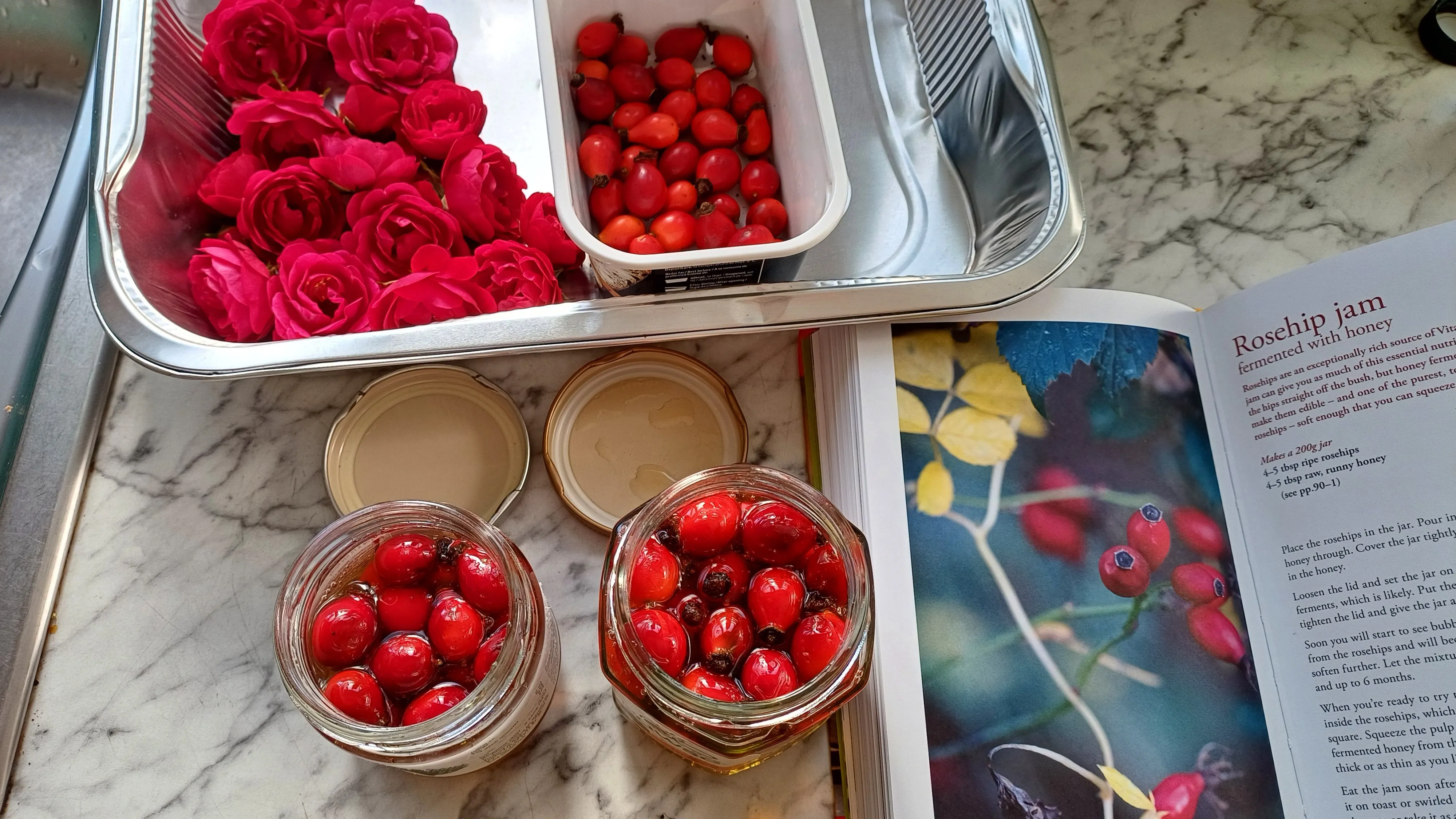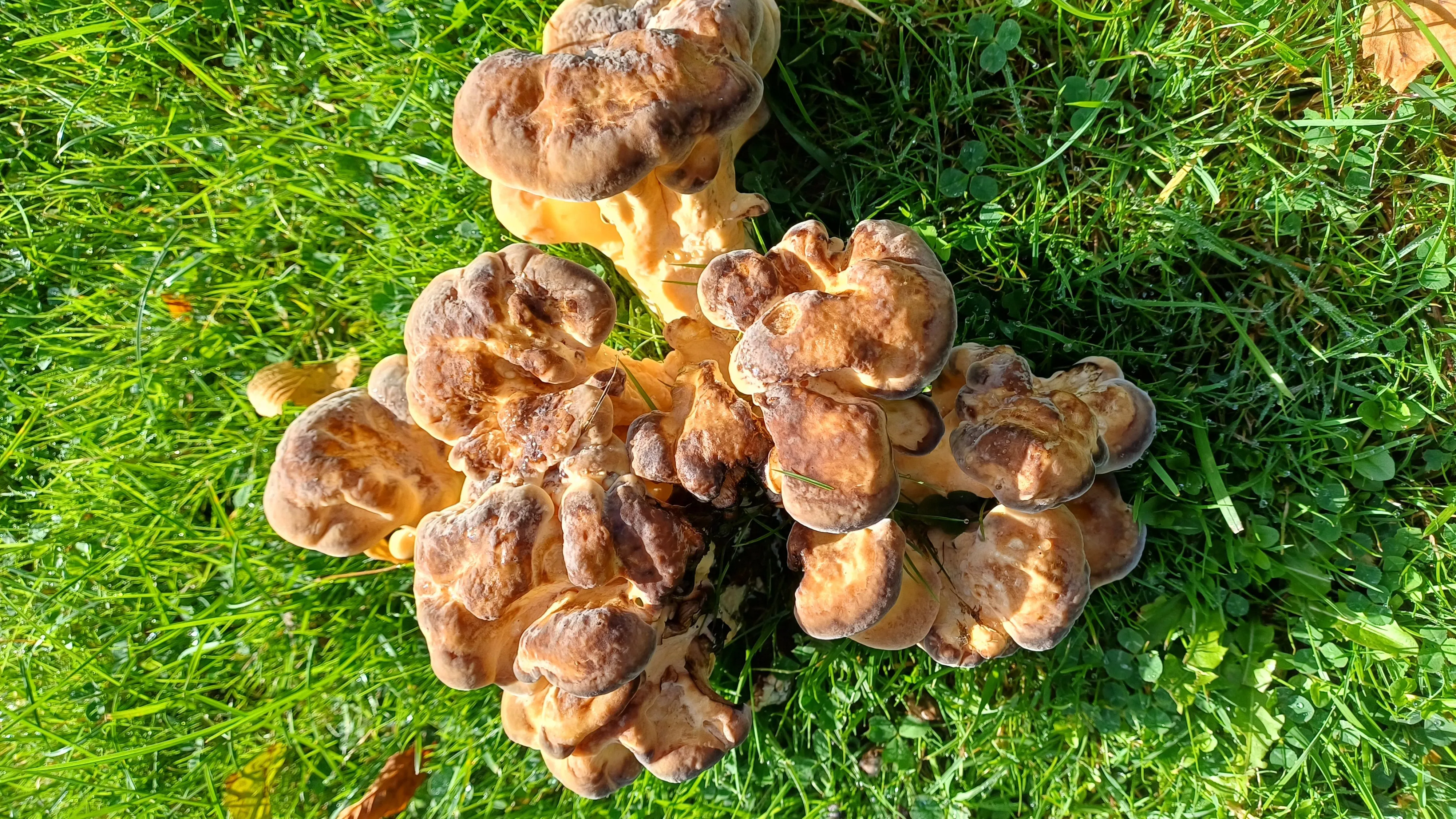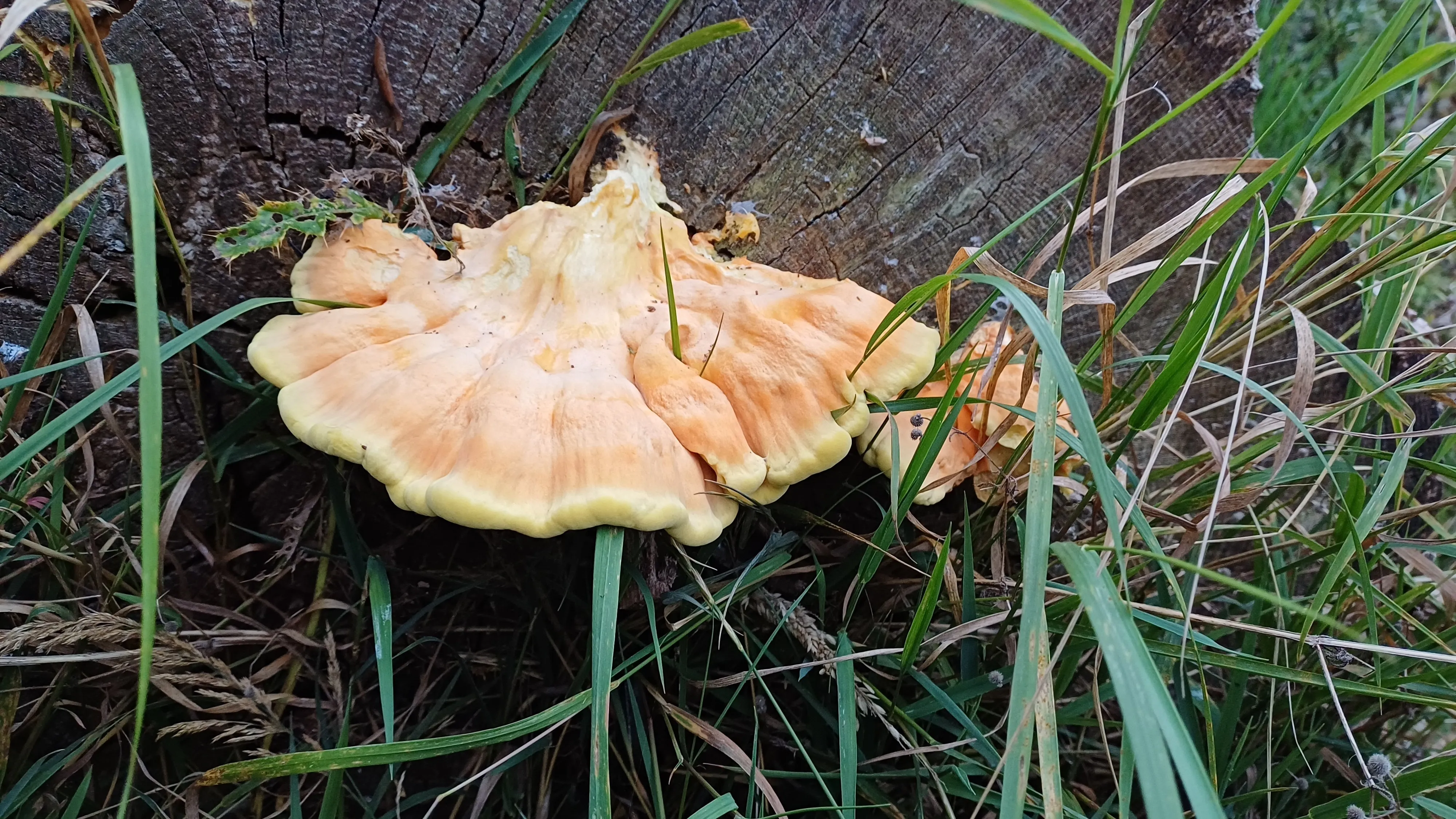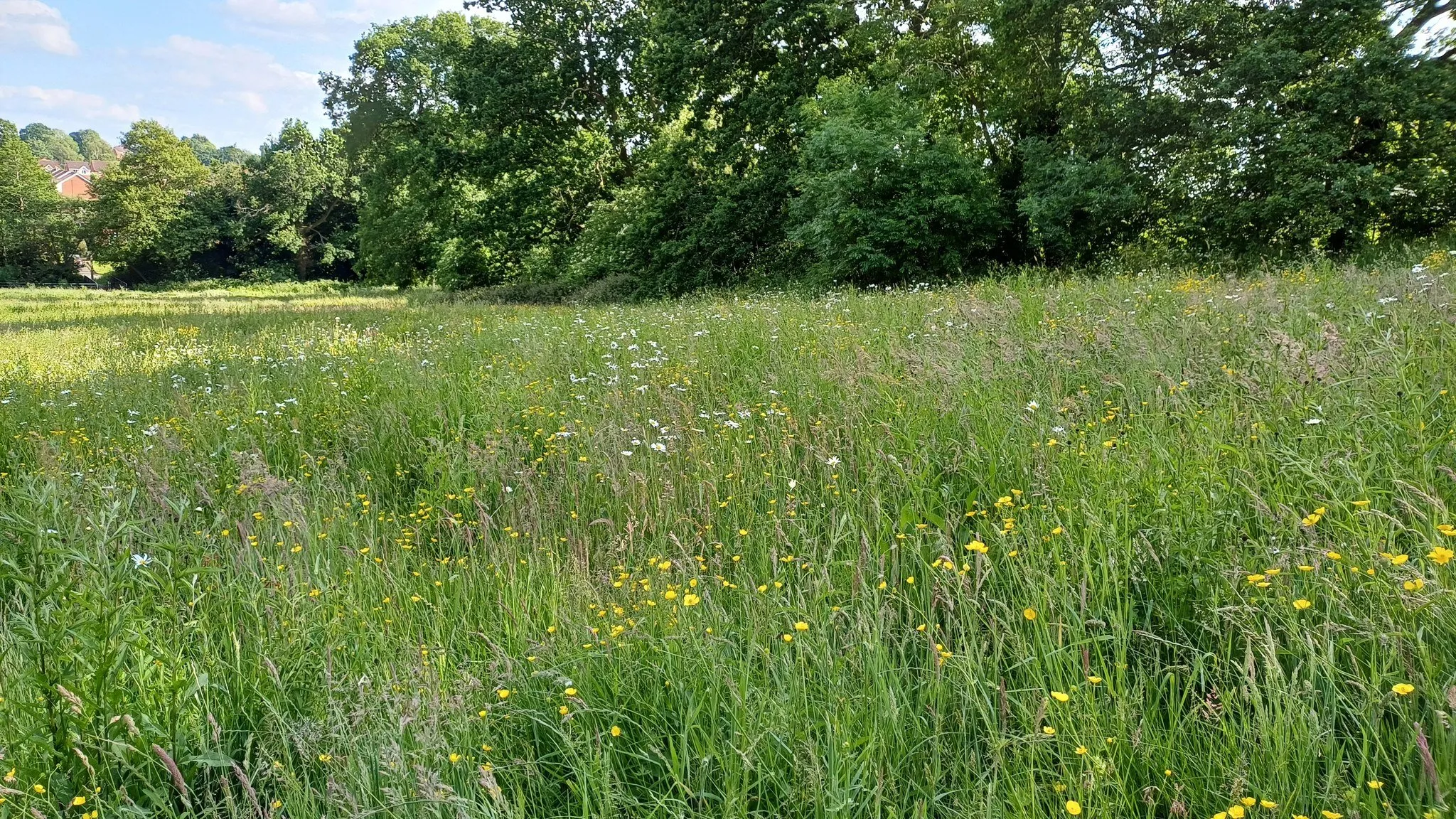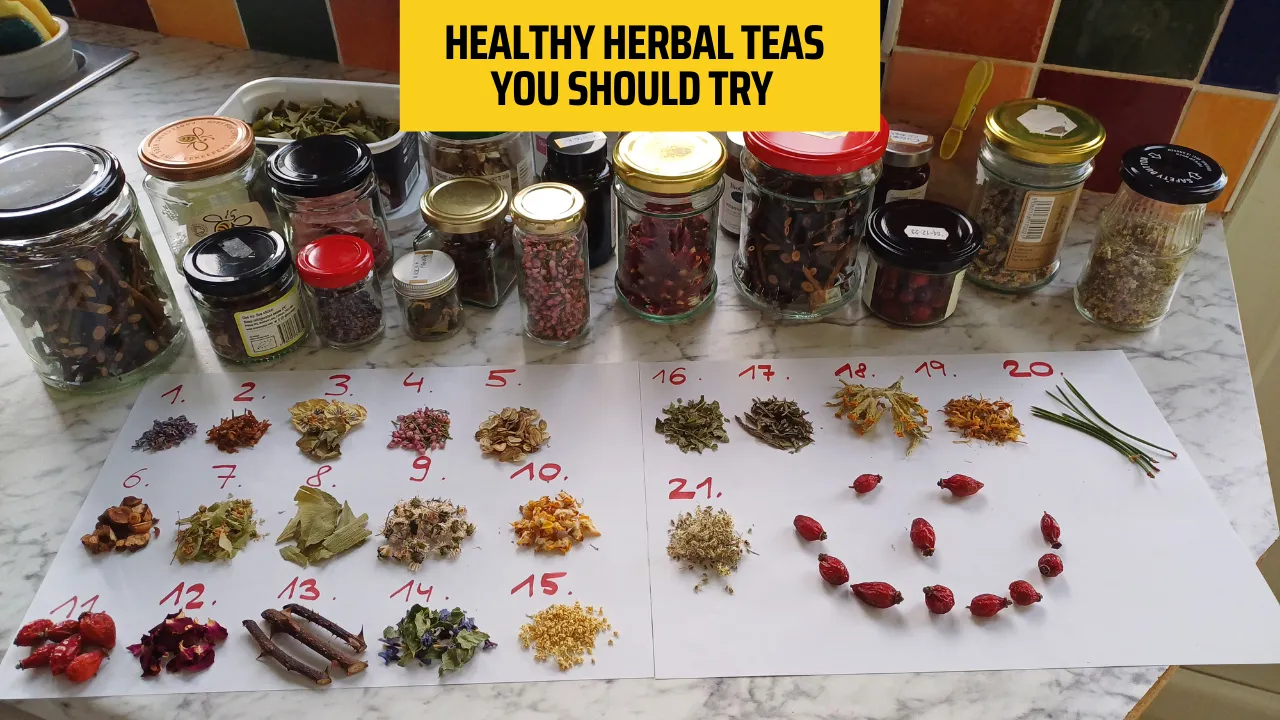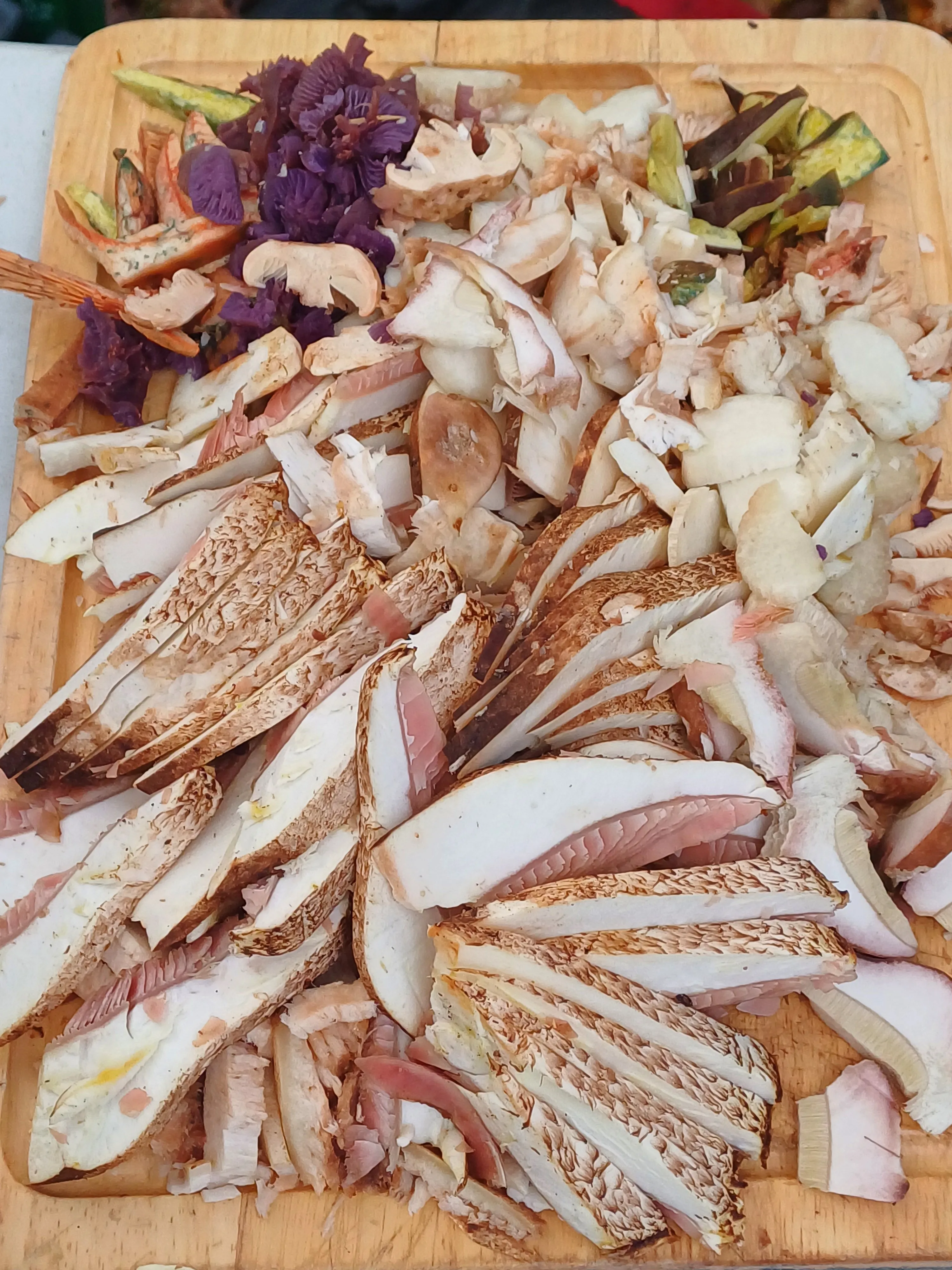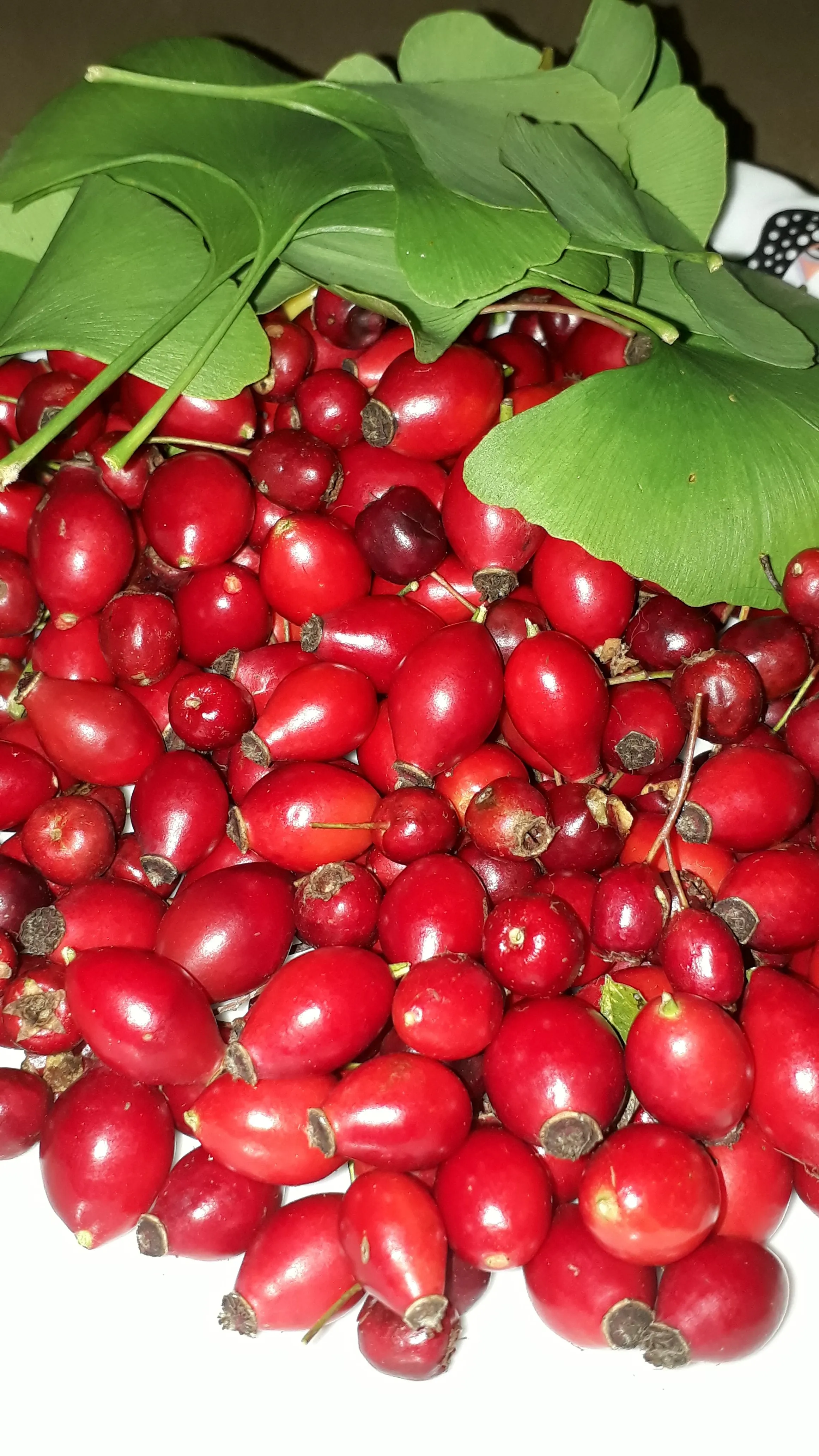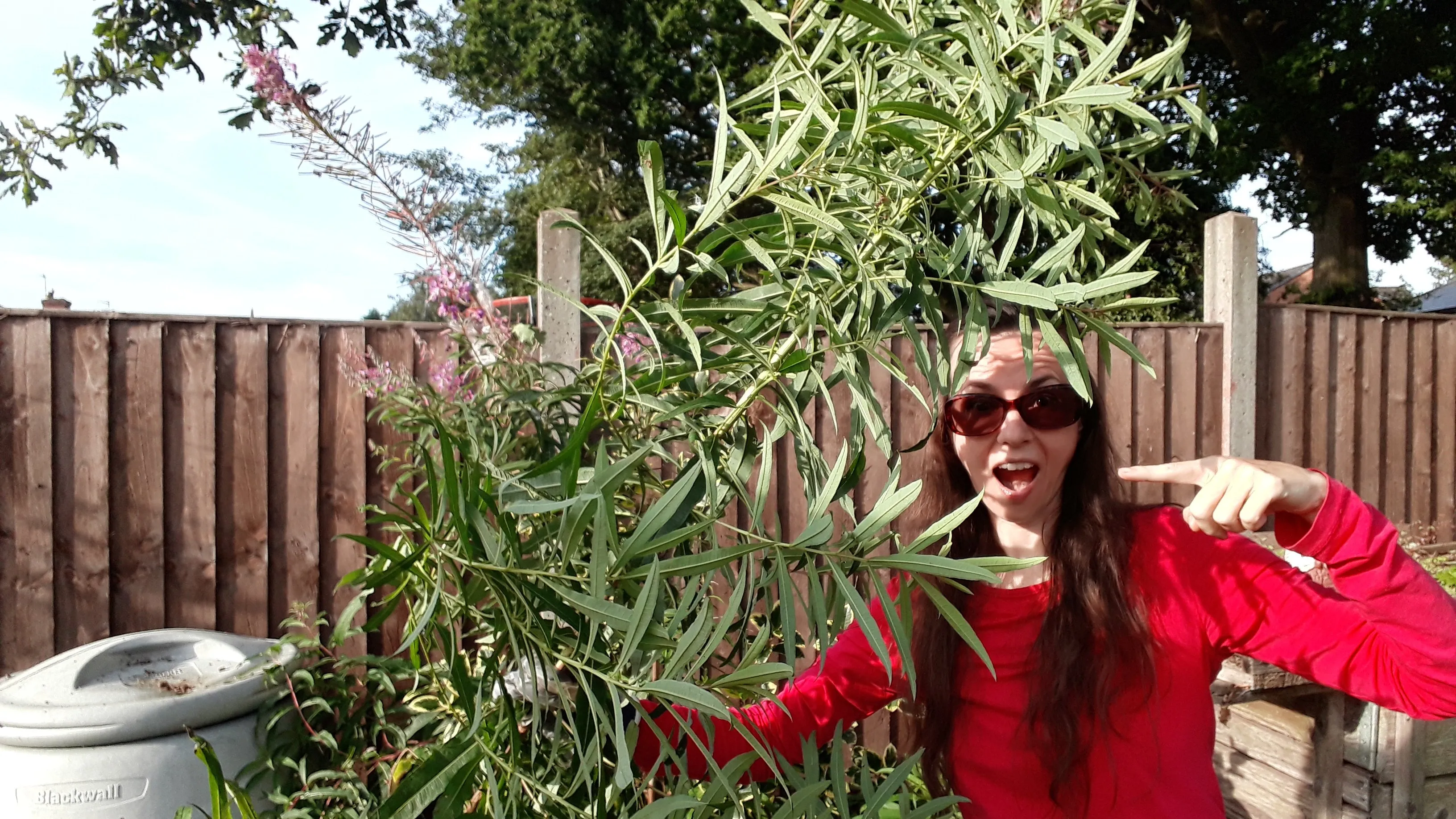Organic approach can halt insect decline
Let's see some useful tips about organic gardening from gardening experts at horticultural charity Garden Organic.
Gardeners are being challenged to make their gardens welcoming haven for wildlife during Organic September and to adopt organic growing methods to help protect our 🌍 planet now and in the future. I think we should focus on this all year long.
Gardening experts at horticultural charity, Garden Organic, point to the huge decline in insects in the UK and across the world as a major driver for action.
😢 Research studies have shown that the numbers of butterflies in the UK fell by an estimated 46% between 1976 and 2017, and the UK's total flying insect population declined by as much as 60% in the last 20 years.

💡Garden Organic is challenging you to take 5 small steps to give nature a chance
🏨 Build a bug hotel
Create a bug hotel to provide a safe haven for wildlife, including solitary bees and other 🐝 insects.
They are easy to make, using an old pallet or wood to make a frame and then fill it with sticks and twigs or bamboo canes, air-bricks, dry straw, rotting logs, stems from flowering plants, old carpet tied into rolls or any other materials that can provide a dry habitat with plenty of space for insects to shelter in. Create both damp and dry areas and place in sheltered corner.
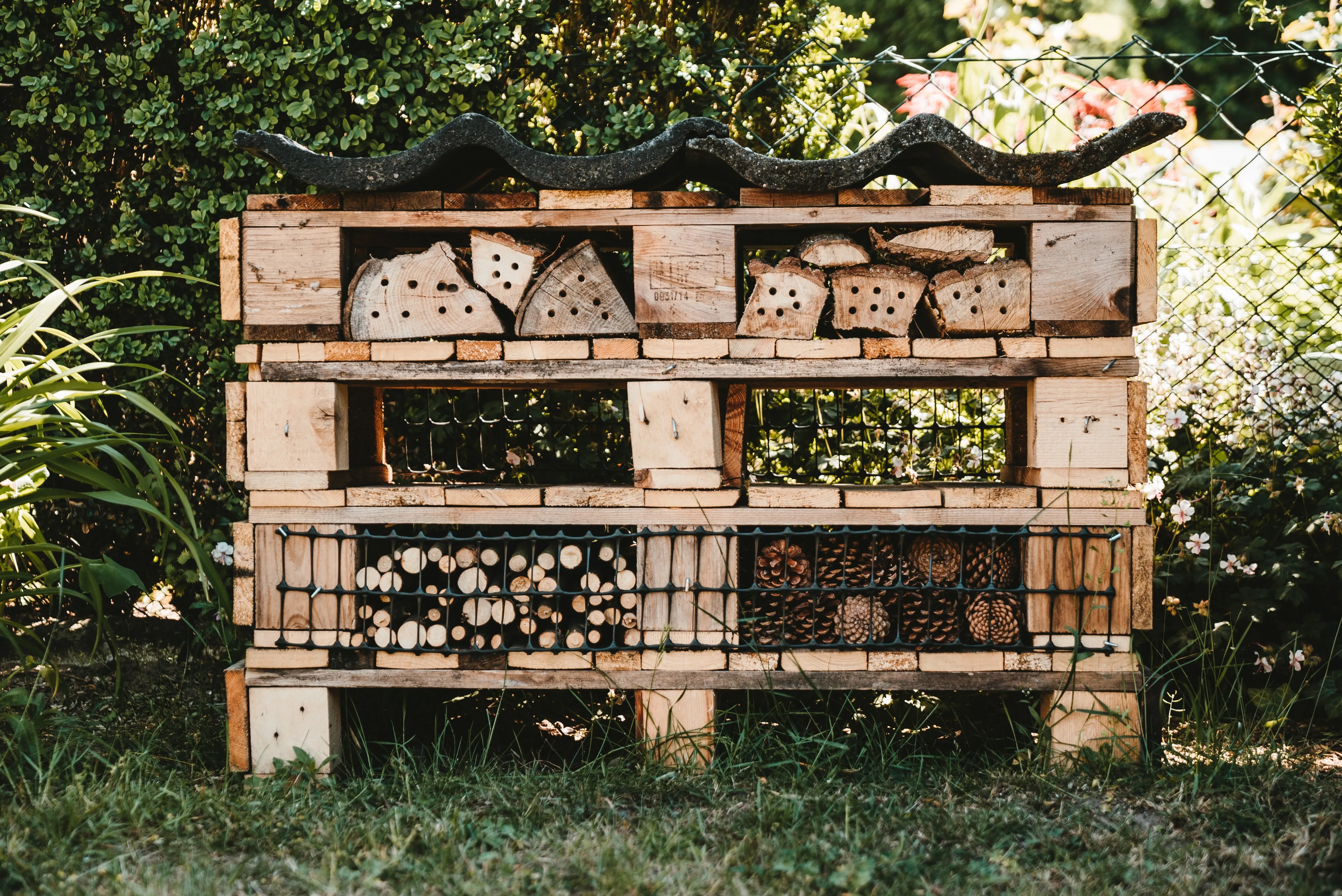
See picture below. "Welcome to Bugingham New Street (Bug Hotel)".
😎 How cool is that?
I'm really glad bug hotels are more and more visible in city centres. This one is from Birmingham New Street. I saw two of them just outside the station while waiting for my friend. This kept me occupied watching little crawlies whilst waiting.
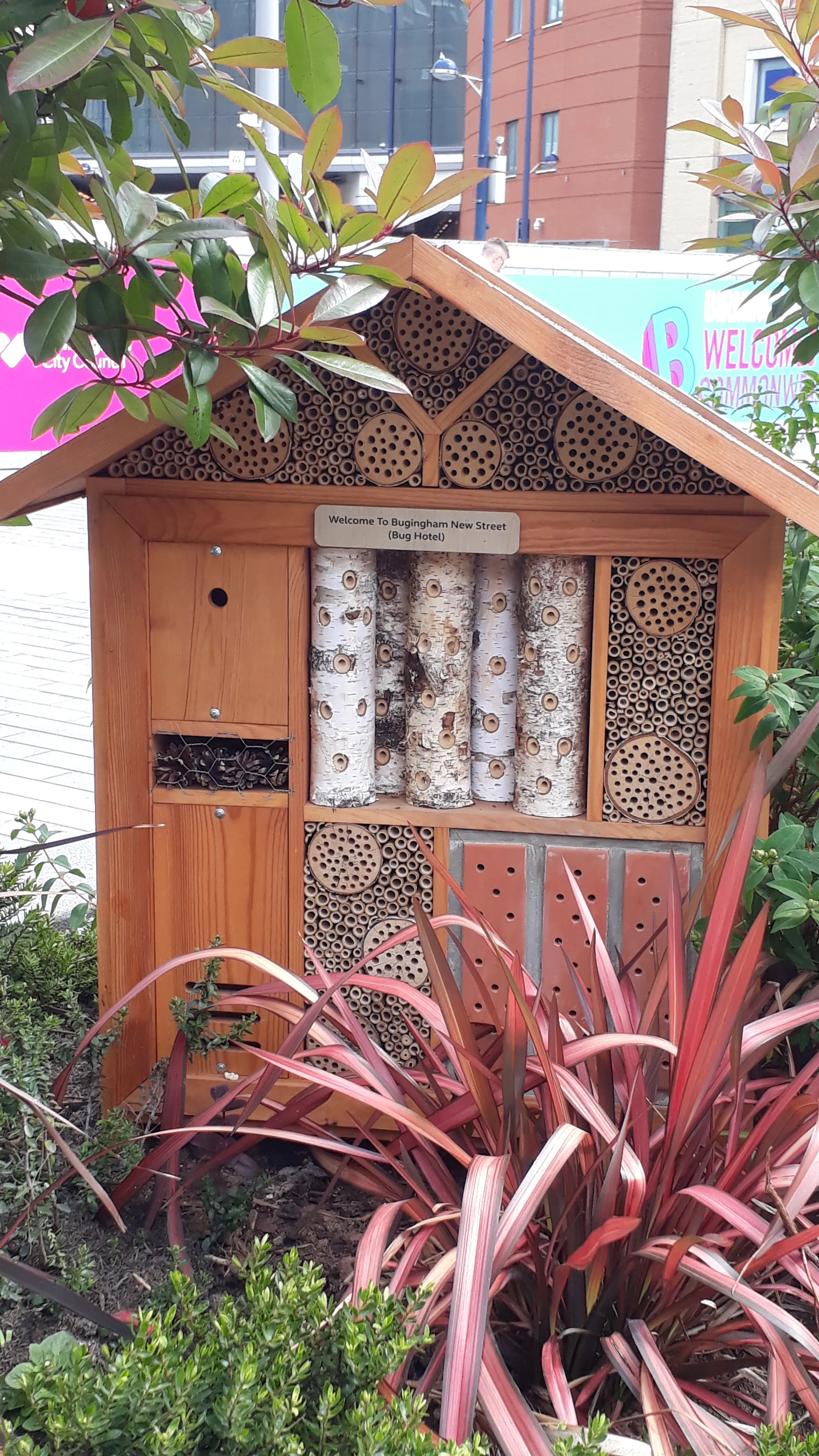
🌱 Grow your own microgreens
You may think that the growing season is over by September, but there are a whole host of items that you can grow either in your garden or on your windowsill.
🧑🌾 Microgreens are a great way to start especially if you are new to growing your own organic food, and you can even use items from your store cupboard.
Dried peas or spice seeds such as mustard seeds and fenugreek seeds make great microgreens. You can sow them directly into your garden or into pots on your balcony, patio or windowsill.

Instructions for sowing:
Rake over an area of soil in your garden getting rid of any large lumps or fill containers with compost or soil to around 2cms from the top. Make sure there are drainage holes in the bottom.
🌱 Sow seeds on top of the compost/soil leaving a pea sized gap between each pea or 1 pinch of mustard seeds per square inch.
Cover with compost and water lightly, check every day and keep moist. Young black mustard plants taste like spicy rocket - you can take a single harvest after 3 - 4 weeks. Fenugreek plants can be used in curries.
Pea shoots can be cut just above the first leaf after 3 weeks. They will grow back and at least one more harvest can be taken 2 weeks later.

💦 Bring water into your garden
Ponds are a fantastic feature for any garden, and they will attract an array of beneficial wildlife, including frogs and toads that will help to keep your slug population under control and insects, birds and hedgehogs will come to drink.

It doesn't have to be big - even a one-metre square pond or washing up bowl sunk into the ground and filled with rainwater (not tap water) will attract the wildlife. Make sure 🪜 you include a step or some sticks to help the wildlife get in and out. All you need is a spade, a plastic bag for a liner and that all important rainwater. For instructions on how to build your pond, visit: https://www.gardenorganic.org.uk/creating-pond
If you have small children and you would rather not have open water in your garden, you can swap the pond for a swamp and make a bog garden instead.
🥃 I bought half whisky barrel planter and use it as a mini pond (see picture below).
🐿️ It's very popular by squirrels, birds, insects and dragonflies. When I work from home I watch birds and squirrels through my window having a well deserved drink. I love watching them. Birds also love having a little bath from time to time.
🐸 I was hoping to see some frogs, no sign of them as yet. I'll remain patient, sooner or later they will come. I'm thinking to buy one more whisky barrel to extend our mini pond collection.

🐛 Build a wormery
For those who don't have space for a compost bin a small wormery can be a great way of recycling your home waste organically.
You will need to feed your worms a balanced diet of approximately 25% dry brown
📰 fibrous materials such as newspapers and 70% wet green materials such as veg and fruit peelings, eggshells and coffee grounds.
The compost produced will be nutrient rich and can be used to top dress plant pots and be used as a soil improver.

What you need
- 3 shallow plastic stacking trays, dark in colour
- One close-fitting lid to fit the trays
- Drill and fine sandpaper
- Newspaper
- Composting worms* (brandling or tiger worms) and compost
- *Brandling worms are red and have a distinctive yellow banding, they occur naturally in garden compost heaps or you can buy mail order or from fishing shops
Instructions
- Drill holes every 3 cm or so in the bottom of 2 of the trays.
- Sand round the holes, so there are no sharp edges.
- Stack the 3 trays, the one with no holes at the bottom.
- Cover the bottom of the top try with 5 double sheets of newspaper. This prevents the worms from leaving the tray until they get used to it.
- Add a few scoops of damp soil, compost or shredded newspaper to the tray and then add the worms and put on the lid.
- Feed the worms around half a cut of chopped food every few days, just place on top.
- Keep an eye on the amount of liquid accumulating in the bottom of the tray and empty regularly.
🌱 Save your own seeds
Saving your own seed is a great way of reducing your carbon footprint, it saves you money and is a great job for September.
Seed saving from peas and beans is very straight forward, as you can just leave some healthy pods on the plant to mature and dry. Then simply pod them, throw away any that look diseased or damaged, and store somewhere cool and dry. I have my peas stash in place for next year.

🍅 Tomatoes are also easy as you just need to scrape the seeds from the fruits, then leave them in water overnight. This makes the flesh easier to remove. You should then clean the seeds thoroughly and leave to fully dry. Once your seeds are dry, you can store them in paper packets and keep in a cool place, around 5 - 8 °C is best.

❓Are you up for this organic growing challenge❓
👉 Let me know what things you will try or already doing.
I hope it inspires you.🥰 Happy organic growing!🌱
From my heart ❤️ to your heart.❤️

